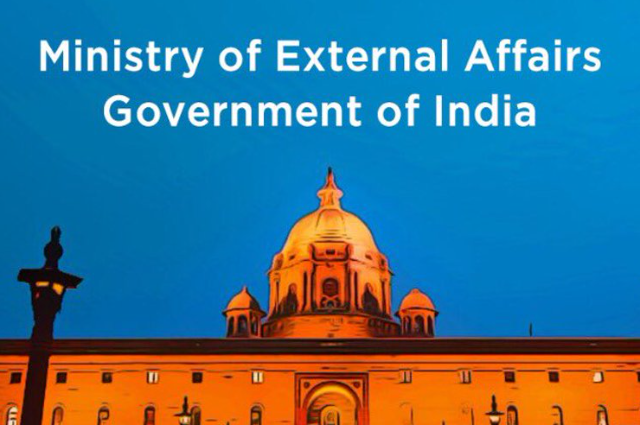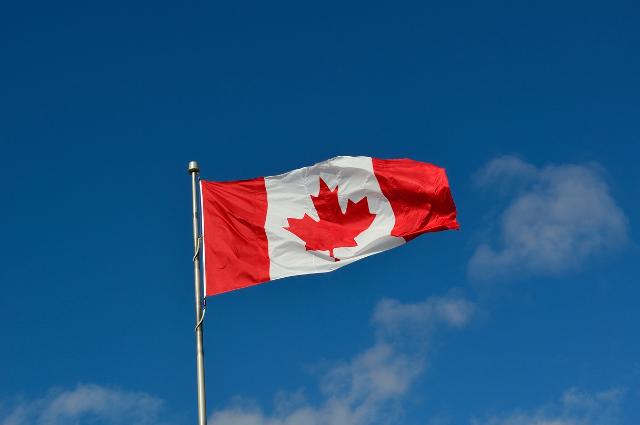
Recently, a memo claiming to be from the Indian government has circulated on social media which was alleging that Indian diplomats are involved in violent crimes abroad. This document that was dated April 2023 has raised significant concerns and confusion among the public. However, the Indian Ministry of External Affairs (MEA) has stepped in to clarify that this memo is entirely false.
Official Denouncement of the Memo
The MEA firmly stated that no such memo has been issued by the Government of India. The External Publicity and Public Diplomacy Division (XP Division) of the Ministry emphasized that the communication in question is a fabrication. This declaration aims to reassure both the Indian movement and the general public about the integrity and professionalism of Indian diplomats serving overseas.
Details of the Fake Memo
The alleged memo claims to originate from former Foreign Secretary Vinay Kwatra and supposedly instructs Indian diplomats to engage with Indian diaspora groups in Canada. It suggests that these groups should be seen as crucial allies in confrontations with Sikh extremists. The memo names several organizations within the diaspora, including:
- Indo-Canada Association (ICA)
- Indo-Canada Chamber of Commerce (ICCC)
- TiE Silicon Valley (TiE SV)
- U.S.-India Business Council (USIBC)
These references have contributed to the memo's credibility among some readers, but the MEA's response highlights its baseless nature.
Implications of Misinformation
The dissemination of such false information can have serious repercussions. It not only misrepresents the actions and intentions of Indian diplomats but also risks straining relationships between India and its diaspora communities abroad. Misinformation like this can provoke unnecessary tensions and foster distrust, which is detrimental to diplomatic relations.
In light of this situation, it is crucial for individuals to critically evaluate information shared on social media platforms. The MEA's clear stance against this fake memo serves as a reminder of the importance of verifying facts before accepting them as truth. As we navigate an increasingly complex information landscape by maintaining a commitment to accuracy will help create understanding and cooperation among diverse communities worldwide.
Tensions Rise Between India and Canada: A Closer Look at Recent Developments
The relationship between India and Canada has been strained recently with both nations at odds over serious allegations. At the heart of this conflict lies India's claim that Canada has become a safe haven for Khalistani separatists, a group advocating for an independent Sikh state in the Punjab region of India.
Recent Incident Fuels Concerns
Adding fuel to the fire, a troubling event occurred last week at a Hindu temple in Brampton, Ontario. Devotees and other individuals were attacked on the temple premises which is raising alarm bells about the safety of the Indian diaspora in Canada. This incident has further complicated the already tense diplomatic situation between the two countries.
India's Response and Call for Action
In light of these events, India has taken a firm stance. The Indian government has strongly condemned the violence at the Brampton temple and urged Canadian authorities to step up their efforts in providing security to Indian diplomats stationed in the country. This request emphasizes India's growing concern about the safety of its officials and citizens in Canada.
Diplomatic Communication Controversy
The situation took another turn last month when Canada sent a diplomatic communication to India. This message suggested that the Indian High Commissioner and other diplomats were "persons of interest" in the killing of Hardeep Singh Nijjar, a prominent Sikh leader in Canada. India's reaction to this communication was swift and strong.
India's Rejection of Canadian Claims
India firmly rejected Canada's suggestions by describing them as "preposterous imputations." The Indian government views these claims as baseless and potentially part of a political agenda driven by Prime Minister Justin Trudeau's government. This rejection highlights the deep mistrust that has developed between the two nations.
Implications for Bilateral Relations
These recent developments have cast a long shadow over India-Canada relations. The ongoing standoff raises questions about the future of diplomatic ties, trade relations, and the well-being of the large Indian diaspora in Canada. It also brings to the forefront complex issues of sovereignty, security, and the challenges of managing diverse communities in multicultural societies.
As this situation continues to unfold, it's clear that both India and Canada face significant challenges in resolving their differences. The need for open dialogue, mutual understanding, and a commitment to addressing each other's concerns has never been more critical. The international community watches closely, hoping for a peaceful resolution to this diplomatic stand-off that respects the interests and security of all parties involved.
Diplomatic Tensions Escalate Between India and Canada: Recall and Rising Tensions

Image by ElasticComputeFarm from Pixabay
Relations between India and Canada have been strained ever since India decided to recall then-High Commissioner Ajay Bisaria, along with five other diplomats, from their postings in Canada. This decision followed a serious diplomatic dispute that erupted after Canadian Prime Minister Justin Trudeau made a controversial statement in the Canadian Parliament. Trudeau claimed to possess "credible allegations" linking the Indian government to the assassination of Hardeep Singh Nijjar, a Khalistani activist.
Trudeau's Allegations and India's Firm Denial
Trudeau’s accusation was a bold one that was sparking a diplomatic standoff between the two nations. India responded swiftly by denying any involvement in the incident and describing Trudeau’s allegations as “absurd” and “motivated.” The Indian government asserted that Canada has become a sanctuary for extremist and anti-India groups including those supporting separatist Khalistani ideologies. India's strong language emphasized the gravity of its opposition to what it viewed as baseless claims, further straining diplomatic ties.
Background of Hardeep Singh Nijjar
The figure at the center of this controversy, Hardeep Singh Nijjar, had a history of legal issues with the Indian government. In 2020, India’s National Investigation Agency (NIA) formally designated Nijjar as a terrorist due to his alleged involvement in Khalistani separatist activities. His death in June of the previous year occurred outside a Gurdwara (a Sikh place of worship) in Surrey, Canada, where he was seriously shot. Nijjar’s assassination has since sparked a wave of discussions regarding security, extremism and foreign influence with both Canada and India deeply divided on the matter.
. . .
References:
